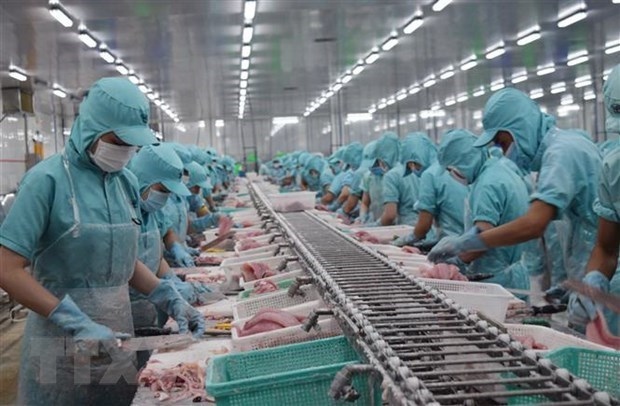Vietnam concerned about Brazil’s rules on aquatic imports
The Vietnam Sanitary and Phytosanitary Notification Authority and Enquiry Point (SPS Vietnam Office) has expressed the country’s concern over Brazil’s application of regulations that go beyond international practices on shrimp and tra fish imported from Vietnam.

SPS Vietnam has asked the country’s permanent mission to the UN, the WTO, and other international organisations in Geneva to liaise with Brazil’s permanent mission to the WTO to convey Vietnam’s concern.
Deputy Director of SPS Vietnam Ngo Xuan Nam said the office proposed online bilateral meetings be held to discuss the issue and that necessary procedures be conducted to include Vietnam’s concern on the agenda of the Committee on Sanitary and Phytosanitary Measures’ March session.
Regarding Brazil’s rules on fish and shrimp imports that do not match international practices, Ngo Hong Phong, Deputy Director of the National Agro-Forestry-Fisheries Quality Assurance Department at the Ministry of Agriculture and Rural Development, said Brazil is only permitting the use of phosphate food additives on the ice cover of aquatic products.
This regulation is not in line with standards issued by the UN’s Codex Alimentarius Commission and international practices, he noted, adding that other markets such as the EU, the US, and Canada allow the use of phosphates for aquatic products at certain levels and do not limit the use to the ice cover, he noted.
To facilitate bilateral trade, the Vietnamese side has asked Brazil to reconsider and align its regulations on phosphate use with the Codex standards and international practices.
Truong Dinh Hoe, Secretary General of the Vietnam Association of Seafood Exporters and Producers (VASEP), said Vietnam’s aquatic exports to Brazil topped US$44 million in 2020, including US$43 million from tra fish.
Though shipments to the South American country make up only a small proportion of Vietnam’s aquatic exports, it is considered a market with much room left for promoting tra fish exports. Therefore, the removal of regulations that fall outside of international practices will help Vietnamese businesses tap further into the market, Hoe said.
